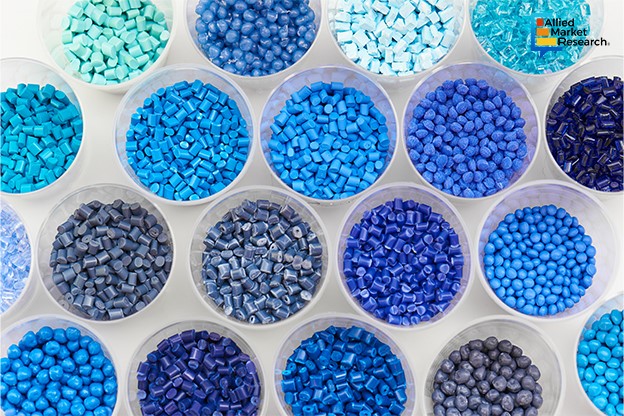Plastic Compounding: Has Your Business Embraced the New Trends in this Versatile Technology?

9 Feb
2024
Highlights:
- What are the latest trends in plastic compounding?
- Major industries benefiting from plastic compounding
- Predictions of leading companies in this domain
Plastic is a versatile material that plays a significant role across several industries fulfilling various purposes. However, its negative environmental impact has restricted its direct use in various industrial applications. With the advancements in science and technology, plastics can be amalgamated with different additives, fillers, flame retardants, and reinforcing agents to create a tailored and more useful product with enhanced characteristics. This process of modifying basic polymers into enhanced forms possessing greater durability, appearance, and performance is called plastic compounding. The optimized plastic products obtained from this process can meet specific requirements of various applications across industries with minimal environmental impacts. In this article, we will discuss the latest trends and applications of plastic compounding benefiting businesses globally.
Which latest trends in plastic compounding can transform your business outcomes?
Nowadays, environmental consciousness has driven industries toward adopting sustainable practices. Businesses have started using biodegradable plastics to address the rising concerns of environmental pollution. This has made many plastic manufacturing companies use recycled polymeric materials to meet the sustainable goals of industries and the rising consumer concerns to reduce plastic waste.
Moreover, the use of nano and micro additives such as antioxidants and UV stabilizers while manufacturing compounding plastics has gained huge popularity. This small step can enhance the material properties of plastics and help develop beneficial characteristics such as improved strength, conductivity, and increased flame resistance properties. Industries such as electronics and automotive are capitalizing on these latest advancements to design and produce high-performance products.
As technology is rapidly penetrating industries, the use of the Internet of Things-based devices in designing smart materials has redefined plastic compounding processes. These advanced devices can help design plastic materials with enhanced properties such as UV resistance, better conductivity, and antimicrobial properties. Such devices can help design top-class products benefiting various applications in sectors including healthcare, automotive, and construction.
Which industries are highly benefited from plastic compounding?
Plastic compounding has been highly beneficial for the pharmaceutical industry. It is a very vital domain that deals with the safety and well-being of individuals. With the rising demand for bio-based materials, this industry has started emphasizing the use of enhanced materials with optimized characteristics. These days, many pharmaceutical companies have customized their packaging materials, leakage-free storage containers, and various types of sealing components to preserve their products more safely and provide optimal health benefits to consumers. Due to this huge applicability, the pharmaceutical sector is expected to hold the maximum share of the global plastic compounding industry, growing at a CAGR of 6.6% during the 2023-2032 period.
Today, most medical plastic applications feature materials that can offer better durability and optimize their performance. For example, polyvinyl chloride has come out as the most used material in medical fabrication that contains several beneficial ingredients such as antioxidants, stabilizers, and other additives. Moreover, tailored plastic compounds can be used to design critical medical devices such as ventilator components, medical tubing products, personal protective equipment, and other consumables. In addition, the increasing demand for application-specific specialty compounds to design specific medical equipment has further skyrocketed the use of plastic compounding in the pharmaceutical and medical sectors.
On the contrary, the growing demand for lightweight materials in the automotive sector has propelled the use of advanced materials in designing new vehicles. The use of plastic materials such as polypropylene and polycarbonate has gained traction in designing various automotive parts such as fuel lines, instrument panels, gas tanks, display screens, gears, and many more. These materials offer greater strength, durability, and lower manufacturing costs. Further, materials like polycarbonate and ABS sheets can be used to design car bumpers, headlight lenses, steering wheel covers, and dashboards to enhance the performance of the vehicles with a sleek look.
Predictions of top companies
- In June 2023, Borealis announced its acquisition of Rialti S.p.A, an Italian enterprise deeply entrenched in polypropylene compounding. This acquisition would expand the production of polypropylene compounds by integrating recycling models. The companies predict that this recycling of PP compounds will help meet consumer demands with a wider range of sustainable and high-performance solutions.
- Recently, Phil McDivitt, the CEO and president of Ascend, the leading supplier of integrated polyamide, stated that Ascend’s acquisition of Poliblend and Esseti Plast GD would strengthen its engineering plastic portfolio and offer high-quality products and services to businesses and consumers to achieve zero-carbon goals.
- Polymer Resources Ltd., a leading provider of high-quality engineering resins, predicts that the expansion of its compounding facility in New York will meet the growing demand for engineering resins by increasing its overall compounding capacity by 40%.
To sum up, the sector is experiencing prominent growth due to the increasing demand for lightweight electric vehicles to lower carbon emissions. Moreover, the growing demand for plastic compounds in industries such as construction and textile manufacturing will create excellent opportunities for the domain in the future.
To capitalize on the investment opportunities of the plastic compounding industry, contact our experts today!

Rosy Behera
Author's Bio- Rosy Behera holds a bachelor’s degree in Electrical and Electronics Engineering and now she is a content writer by profession. She loves to portray her thoughts and ideas with a nice command of words. Grabbing an audience with her creative write-ups is one of her biggest assets so far. Apart from writing, she is a certified “Odisi” dancer and has done Gardharva in Drawing, Painting, and Arts. She always explores new things through travel and is a big foodie.
Avenue: Entire Library membership of Allied Market Research Reports at your disposal
- Avenue is an innovative subscription-based online report database.
- Avail an online access to the entire library of syndicated reports on more than 2,000 niche industries and company profiles on more than 12,000 firms across 11 domains.
- A cost-effective model tailored for entrepreneurs, investors, and students & researchers at universities.
- Request customizations, suggest new reports, and avail analyst support as per your requirements.
- Get an access to the library of reports at any time from any device and anywhere.
Related Post
-
How are Submarine Cables Transforming Global Connectivity with Enhanced User Experience?
-
Endoscopy Procedures: Transformations in Techniques and Applications
-
AI-Powered Video Analytics: How the Product Actually Works for enterprises
-
Painting Robots: Transforming Precision Coating and Creative Applications
-
Innovations in Pharmacovigilance Systems Advancing Patient Safety
-
Understanding Edge Security: Keeping Data Safe Near the Source
-
Exploring the Use and Advancements of 3D Laser Scanners in Professional Applications
-
Reinforcing Industrial Controls with Smarter Tools and Training








